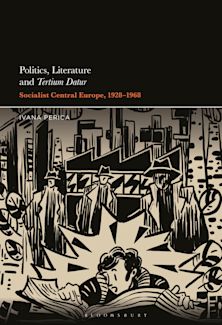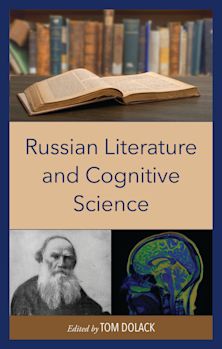- Home
- ACADEMIC
- Literary Studies
- Russian, Central and East European Literature
- The Phoenix of Philosophy
The Phoenix of Philosophy
Russian Thought of the Late Soviet Period (1953–1991)
The Phoenix of Philosophy
Russian Thought of the Late Soviet Period (1953–1991)
You must sign in to add this item to your wishlist. Please sign in or create an account
Description
This groundbreaking work by one of the world's foremost theoreticians of Russian literature, culture, and thought gives for the first time an extensive and detailed examination of the development of Russian thought during the late Soviet period. Countering the traditional view of an intellectual wilderness under the Soviet regime, Mikhail Epstein offers a systematic account of Russian thought in the second half of the 20th century. In doing so, he provides new insights into previously ignored areas such as Russian liberalism, personalism, structuralism, neo–rationalism, and culturology.
Epstein shows how Russian philosophy and culture has long been trapped in an intellectual prison of its own making as it sought to create its own utopia. However, he demonstrates that it is time to reappraise Russian philosophical thought and cultural theory, now freed from the bonds of totalitarianism. We are left with not only a new and exciting interpretation of Russian thought, but also an opportunity to rethink our own intellectual heritage.
Table of Contents
Introduction
Part 1. Vicissitudes of Soviet Marxism
Part 2. Neo-rationalism. Structuralism. General methodology
Part 3. The philosophy of personality and of freedom
Part 4. Culturology, or, the philosophy of culture
Conclusion
Works cited
Appendix: Original Russian and other foreign-language titles
Name index
Subject index
Product details

| Published | Jun 27 2019 |
|---|---|
| Format | Ebook (PDF) |
| Edition | 1st |
| Extent | 312 |
| ISBN | 9781501316432 |
| Imprint | Bloomsbury Academic |
| Publisher | Bloomsbury Publishing |
About the contributors
Reviews
-
Few books could be a better, more incisive and captivating guide to the intellectual richness of an important historical period than Mikhail Epstein's history of Russian thought in the late Soviet period ... a treasure-trove of discovery, opening up a vault of riches that is vast and multi-leveled.
Slavic Review
-
The Phoenix of Philosophy benefits from its author's encyclopaedic knowledge of the many philosophical tendencies and the individual philosophers he describes. He is brilliant at summarising their ideas ... Epstein's work is a great achievement
Marx and Philosophy Review of Books
-
Both a provocative analytical study and a philosophical dictionary of sorts, the book is absorbing and extremely valuable and should hopefully reach a large-and not just Slavic-audience.
Slavic and East European Journal
-
[T]his is a very helpful and stimulating work.
Slavonic & East European Review
-
Bold, comprehensive, and beautifully written, this book retrieves one of the best-forgotten parts of global intellectual history. While the lives of leading Soviet thinkers were tragic, Mikhail Epstein presents their philosophy as liberating: a sublime lesson of hope and resistance for our time.
Alexander Etkind, Professor of History of Russia-Europe Relations, European University at Florence, Italy
-
An impressive work of synthesis, this book offers a fascinating panorama of Soviet intellectual life in the second half of the 20th century. Epstein writes with clarity and conviction that stem from his knowledge and immediate experience of the times he revisits in these often riveting pages.
Galin Tihanov, George Steiner Professor of Comparative Literature, Queen Mary University of London, UK

ONLINE RESOURCES
Bloomsbury Collections
This book is available on Bloomsbury Collections where your library has access.


































